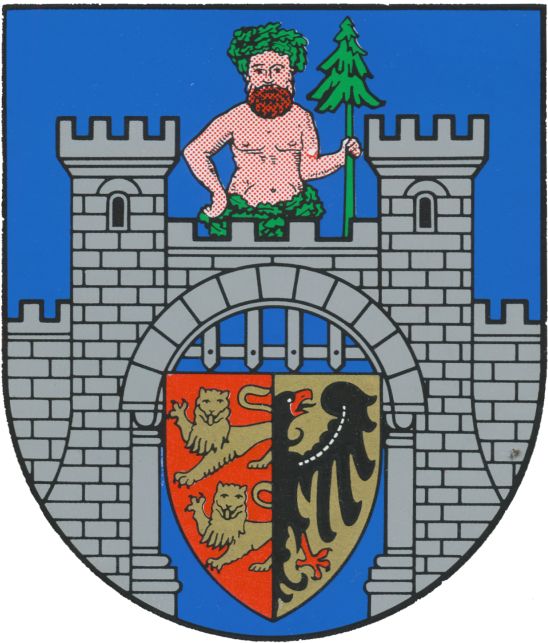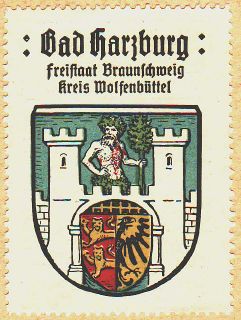Bad Harzburg: Difference between revisions
Knorrepoes (talk | contribs) No edit summary |
Knorrepoes (talk | contribs) m (Text replace - "|width="15%"|50 px|right |}" to "|width="15%"|50 px|right |}<seo title="Wappen, Gemeindewappen" />") |
||
| Line 3: | Line 3: | ||
|width="70%" align="center" |'''Heraldry of the World<br/>Civic heraldry of [[Germany]] - [[Deutsche Wappen|Deutsche Wappen (Gemeindewappen/Kreiswappen)]]''' | |width="70%" align="center" |'''Heraldry of the World<br/>Civic heraldry of [[Germany]] - [[Deutsche Wappen|Deutsche Wappen (Gemeindewappen/Kreiswappen)]]''' | ||
|width="15%"|[[File:Germany.jpg|50 px|right]] | |width="15%"|[[File:Germany.jpg|50 px|right]] | ||
|} | |}<seo title="Wappen, Gemeindewappen" /> | ||
'''BAD HARZBURG''' | '''BAD HARZBURG''' | ||
Revision as of 16:42, 5 November 2012
| Heraldry of the World Civic heraldry of Germany - Deutsche Wappen (Gemeindewappen/Kreiswappen) |
BAD HARZBURG
State : Niedersachsen
District (Kreis) : Goslar (until 1972 Wolfenbüttel)
Additions : 1972 Bettingerode, Bündheim, Harlingerode, Westerode
Origin/meaning
The arms were granted in 1894 by the Duke of Braunschweig, at the same time as the city rights were granted.
Previously, the village Neustadt-Harzburg used a pine tree in its seal. The savage and tree symbolise the position in the Harz mountains. The gate is the local castle, built in 1065 by Emperor Heinrich IV. The castle at first was an imperial eagle, later a possession of the Dukes of Branschweig-Wolfenbüttel. The arms in the gate are thus a combination of the lions of Braunschweig with the imperial eagle.
| Seal from around 1900 |
The arms in the Kaffee Hag albums +/- 1925 |
Literature : Stadler, K. : Deutsche Wappen - Bundesrepublik Deutschland. Angelsachsen Verlag, 1964-1971, 8 volumes.



